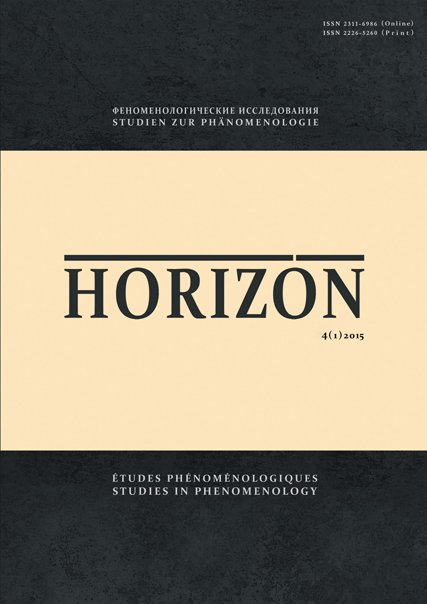DIE "ETHISCHE" DIMENSION DER HEIDEGGERSCHEN
PHILOSOPHIE: DIE FRAGE NACH DER URSPRÜNGLICHEN ETHIK
"ETHICAL" DIMENSION OF HEIDEGGER’S PHILOSOPHY:
THE QUESTION OF THE ORIGINS OF ETHICS
Author(s): Natalia ArtemenkoSubject(s): Ethics / Practical Philosophy, Phenomenology
Published by: Издательство Санкт-Петербургского государственного университета
Keywords: ethics; eidos; ethos; Aristotle; Dasein; existence; being; ontology; ontic foundation; herme¬neutic phenomenology; factuality; Ereignis
Summary/Abstract: The theme «Heidegger and ethics» remains controversial among the researchers of Heidegger. Somehowit turns to talk about Heidegger and do not raise issues of ethics and, by contrast, the talks aboutethics often directly concern the figure of Heidegger. Our task is not to justify the possibility of «Heidegger‘s ethics». The question of ethics in Heidegger‘s philosophy should be shown as quite competentas well as the demonstration an ethical perspective in his thinking at different stages. However, thevery first difficulty that we face, setting themselves above the problem is that Heidegger quite rare andvery specific — for the most part even negative — spoke about ethics. The second problem — quiteobvious here — Heidegger did not leave us any systematic work devoted to ethics. In this article wetry to trace the path of Heidegger‘s thinking in order to understand where there is any possibility ofthe ethical dimension in Heidegger‘s philosophy which is seen by different researchers in the differentmanners. Heidegger proposes to consider ethics in its original source, distinguishing it from moralityas well as from «ethics» as a «philosophical discipline» closed to the social or political issues. Heideggerdistinguishes ἔθος and ἦθος, preferring to talk about «ethos» and not about «ethics». The main«hero» for Heidegger is Aristotle. Heidegger was not so much influenced by Aristotle as he helped tobring Aristotle to some entirely new and unexpected interpretation which is differ from the traditionalinterpretation. We must say that Heidegger from the outset challenged the established and entrenchedin the European metaphysics the primacy of practical over the theoretical. To rethink the «first» ofthe first philosophy — that’s what Heidegger attempts, referring to the Aristotelian texts. The leadingquestion in regard to the interpretation of Aristotle is the question about existential objectness, in whichand through which human existence and the existence of life being interpreted. Heidegger asks himselfwhat is a phenomenal base of the explication of Dasein and what categories occur here. We are followingthis question in the article, beginning with the project of the hermeneutic phenomenology and endingwith the existentiall-historical thinking as significant milestones of Heidegger’s path of thinking.
Journal: Horizon. Феноменологические исследования
- Issue Year: 4/2015
- Issue No: 1
- Page Range: 146-157
- Page Count: 12
- Language: German

